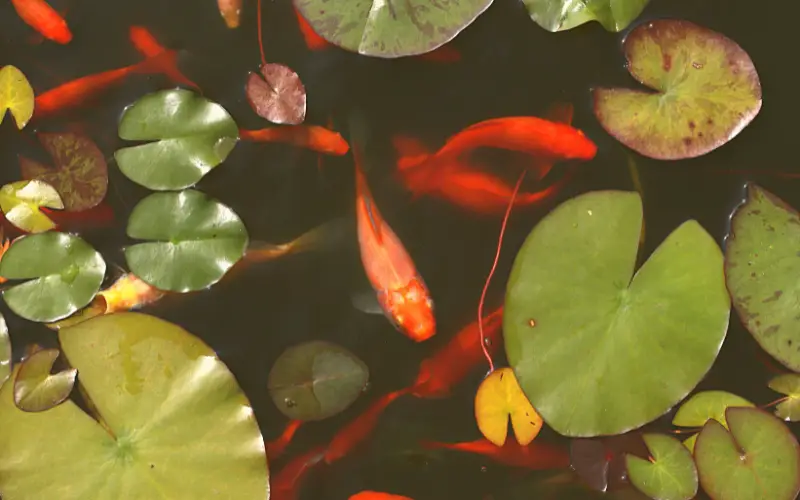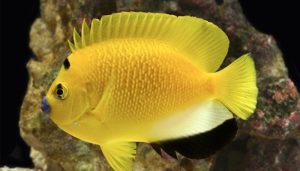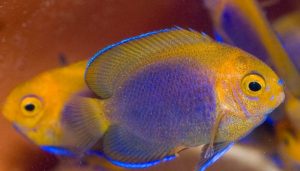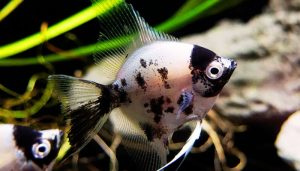Can you eat goldfish? Safety, taste, and legal facts explained. Have you ever looked at a goldfish and wondered if it’s edible? While it might sound unusual, people have eaten goldfish before—but should you?
Yes, you can eat goldfish, but it’s not recommended. Their taste is often described as muddy and unpleasant due to their diet.
Additionally, there are safety and legal concerns, as pet store goldfish may contain harmful bacteria or chemicals.

But there’s more to consider before taking a bite. What do experts say about eating goldfish? Let’s dive into the facts and uncover whether it’s safe, legal, or even worth the experience.
Table of Contents
ToggleCan You Eat Goldfish Safely? here’s what happened
When considering the safety of eating goldfish, it’s crucial to understand the potential risks involved. Goldfish are often kept in aquariums and may carry parasites or diseases that can be harmful if ingested.
, many pet goldfish are treated with chemicals and medications not suitable for human consumption. Therefore, while it may be possible to eat goldfish in theory, it is not advisable to consume goldfish kept as pets without proper precautions.
If someone decides to devour goldfish, it’s essential to ensure that they come from a clean, safe environment, such as a well-maintained pond, rather than a typical aquarium.
Moreover, many goldfish are bred specifically for ornamental purposes and may not be raised with the intention of being consumed. This means that most pet goldfish are not considered good eating.
If you are curious about the culinary aspects of goldfish, always consult with experts on how to prepare freshwater fish safely. Ultimately, the best practice remains to source fish from reputable suppliers that provide fish species known for safe human consumption.
Domestic goldfish typically consume commercially prepared fish flakes or pellets, and if you’ve caught a whiff of these, you can attest that they don’t seem very appealing. The components of fish food may consist of fish and squid meal, fish roe, worms, algae, and even antibiotics along with various other additives. Quite unappetizing.
Is A Goldfish Edible?
Goldfish belong to the carp family and, like other members of this species, they can technically be consumed. However, the edibility of goldfish is often questioned due to their small size and the way they are typically raised.
Most goldfish in home aquariums are not bred as feeder fish for consumption, making them less desirable for eating. Even though they are freshwater fish, the flavor and texture may not be appealing compared to more common fish like trout or catfish, which are known for their culinary qualities.
Additionally, it is important to differentiate between breeds when considering the edibility of goldfish. For example, the crucian carp is a wild relative of the goldfish and is more commonly consumed in various cultures.
If one is interested in exploring the culinary potential of goldfish, opting for breeds known to be edible, like crucian carp, might provide a better experience. However, consuming pet goldfish is generally not recommended due to their treatment and lack of proper breeding for human consumption.
What Do Wild Goldfish Taste Like?
The taste of wild goldfish, particularly those that are closer in lineage to the crucian carp, can differ significantly from their domesticated counterparts. Wild goldfish are typically described as having a mild flavor, similar to other freshwater fish.
This flavor can be enhanced through various cooking methods, making them a potential addition to a diverse menu. However, the taste of goldfish is not widely documented compared to more popular fish species.

When prepared properly, wild goldfish can provide a unique culinary experience. They can be grilled, baked, or fried, and when seasoned appropriately, their flavor can be quite pleasant.
The texture is also comparable to other small fish, making them suitable for dishes that require delicate handling. However, due to their small size, they may not provide substantial meat compared to larger freshwater species, which is something to consider for anyone interested in trying wild goldfish.
Can You Eat Raw Goldfish?
You can’t eat goldfish without cooking, Eating it raw raises significant health concerns, primarily due to the potential for parasites and harmful bacteria. Unlike sushi-grade fish that are specifically sourced and prepared for raw consumption, goldfish are not considered safe for raw eating.
The risk of swallowing parasites or pathogens that could lead to foodborne illnesses is much higher with goldfish, especially those kept in aquariums, where they might be exposed to harmful substances.
If one were to consider eating raw goldfish, it would be imperative to ensure they come from a pristine environment, such as a clean pond, and have been properly handled to minimize health risks.
However, even with these precautions, it is generally not advisable to consume goldfish in their raw form. Cooking them thoroughly is recommended to kill any potential parasites and bacteria, ensuring a safer eating experience.
Thus, while technically possible, swallowing goldfish raw is not a practice endorsed by health experts.
Remember: Live goldfish often harbor dangerous parasites, such as intestinal worms, which can be passed on to humans.
Legal Facts about Eating Comet Goldfish
The legality of consuming comet goldfish varies by region, and it is essential to be aware of local laws before considering them for consumption. In some areas, goldfish may be classified as pet fish, and consuming them could be frowned upon or even illegal.
Additionally, there may be restrictions regarding the capture of wild goldfish, which can further complicate the legality of their consumption. Understanding these regulations is crucial for anyone curious about eating this breed of goldfish.
Furthermore, the classification of goldfish as a non-food fish species means that they are not subject to the same regulations as commercially harvested fish. This could lead to legal challenges if someone were to attempt to sell or distribute goldfish for consumption.
Therefore, it is essential to research the laws governing goldfish consumption in your area to avoid potential legal issues. Being informed about these legal facts ensures that those interested in exploring the culinary possibilities of comet goldfish do so responsibly and within the confines of the law.
FAQs
Can you eat goldfish, and is it safe to do so?
While technically you can eat goldfish, it is not advisable due to health risks. Goldfish are often kept as pets and may carry parasites or toxins. It’s best to avoid consuming them and opt for fish that are intended for human consumption.
What do people say about the taste of goldfish?
The taste of goldfish is not commonly described, as they are not typically consumed. Those who have tried it report that goldfish have a mild flavor, but the experience is often overshadowed by the fact that they are more of a novelty than a food source.
Are there legal issues surrounding the consumption of goldfish?
In some areas, it may be illegal to consume pet fish, including goldfish. Always check local regulations before considering any fish as a food source.
What should I know about feeder fish and their safety?
Feeder fish, including goldfish, are often used in aquariums to feed larger fish. However, these fish can carry diseases and parasites that might affect your aquarium’s health. It’s essential to quarantine feeder fish before introducing them to your main tank.
Are goldfish suitable for human consumption compared to other fish?
Goldfish are not a suitable food source compared to other fish like salmon or tilapia. They are primarily bred as aquarium pets and may not meet the same health standards as commercially available fish.
What happens if you release goldfish into the wild?
Releasing goldfish into the wild can disrupt local ecosystems. They are a domesticated breed of wild carp and can become invasive, outcompeting native species for resources.
How should I care for a mature goldfish if I choose to keep one?
Proper goldfish care involves maintaining a clean aquarium, providing adequate filtration, and offering a balanced diet. Make sure to monitor water quality and ensure that your goldfish are not kept in overcrowded conditions.
Can goldfish gulp air, and what does that mean for their health?
Yes, goldfish can gulp air, especially if they are not receiving enough oxygen from the water. This behavior can indicate poor water quality or insufficient aeration in their environment.
Can you eat goldfish with braces?
Yes, you can eat Goldfish crackers with braces, but chew carefully to avoid damaging brackets. Avoid hard or sticky foods for optimal brace care.
Conclusion
So, can you eat a goldfish? In conclusion, while goldfish, particularly varieties like comet goldfish and crucian carp, can technically be eaten, there are numerous safety, taste, and legal factors to consider. Most pet goldfish are not bred for consumption and may pose health risks due to parasites and improper treatment. Wild goldfish might offer a unique flavor experience, but they should be approached with caution, especially when considering raw consumption. Legal aspects vary by location, emphasizing the importance of understanding local regulations regarding the consumption of goldfish. Overall, while the idea of eating goldfish might intrigue some, it’s essential to prioritize safety and legality before taking any culinary leap with these colorful freshwater fish.
You might also like
- Can Goldfish See in Dark to Eat? (You might Be Shocked)
- Does Goldfish Lay Eggs or give Live Birth: Myths Debunked
- Golden fish Breeding Size: 5 Secrets to Bigger Broods (Solved)
- Why do My Goldfish Not Eating: 5 Hidden Causes & Solutions!
- 5 Clear Goldfish Breeding Signs You Need to Know!
- Will Goldfish produce in Garden Pond: 5 Positive Signs to Look For
- How Big Do Goldfish Have to Be to Breed: (A Detailed Answer)




